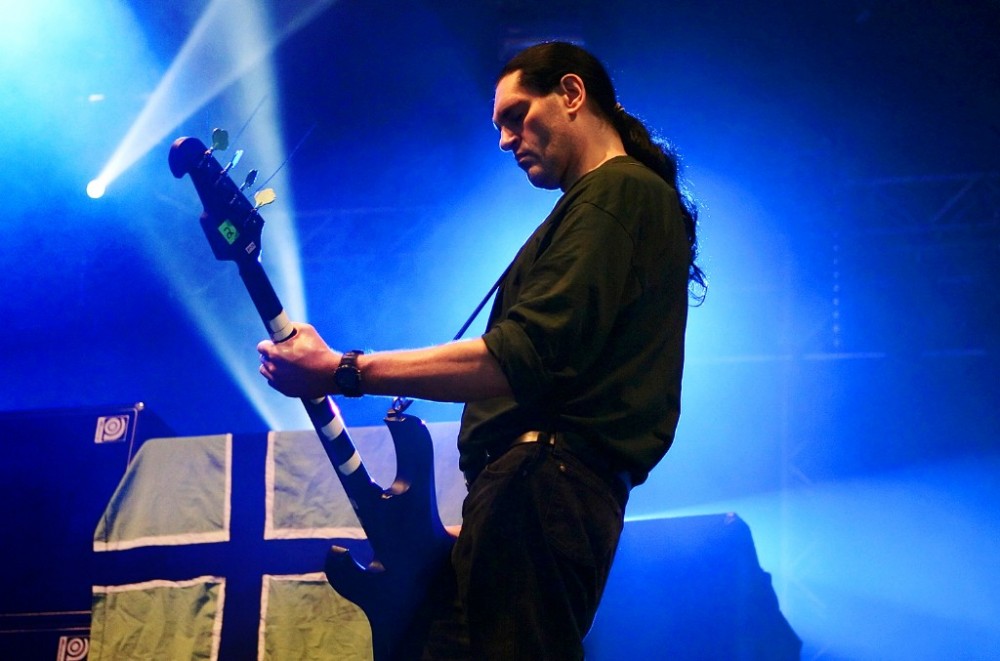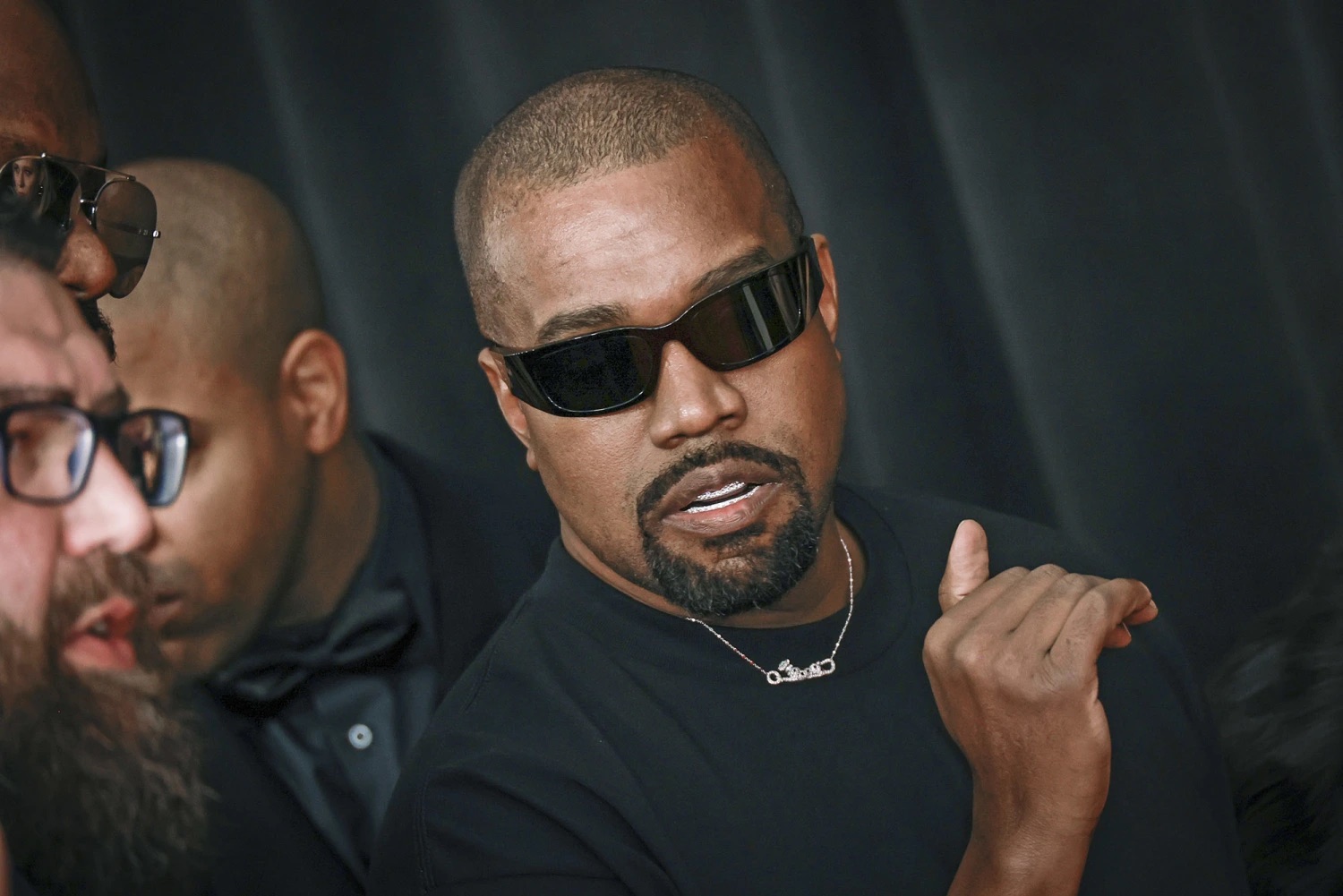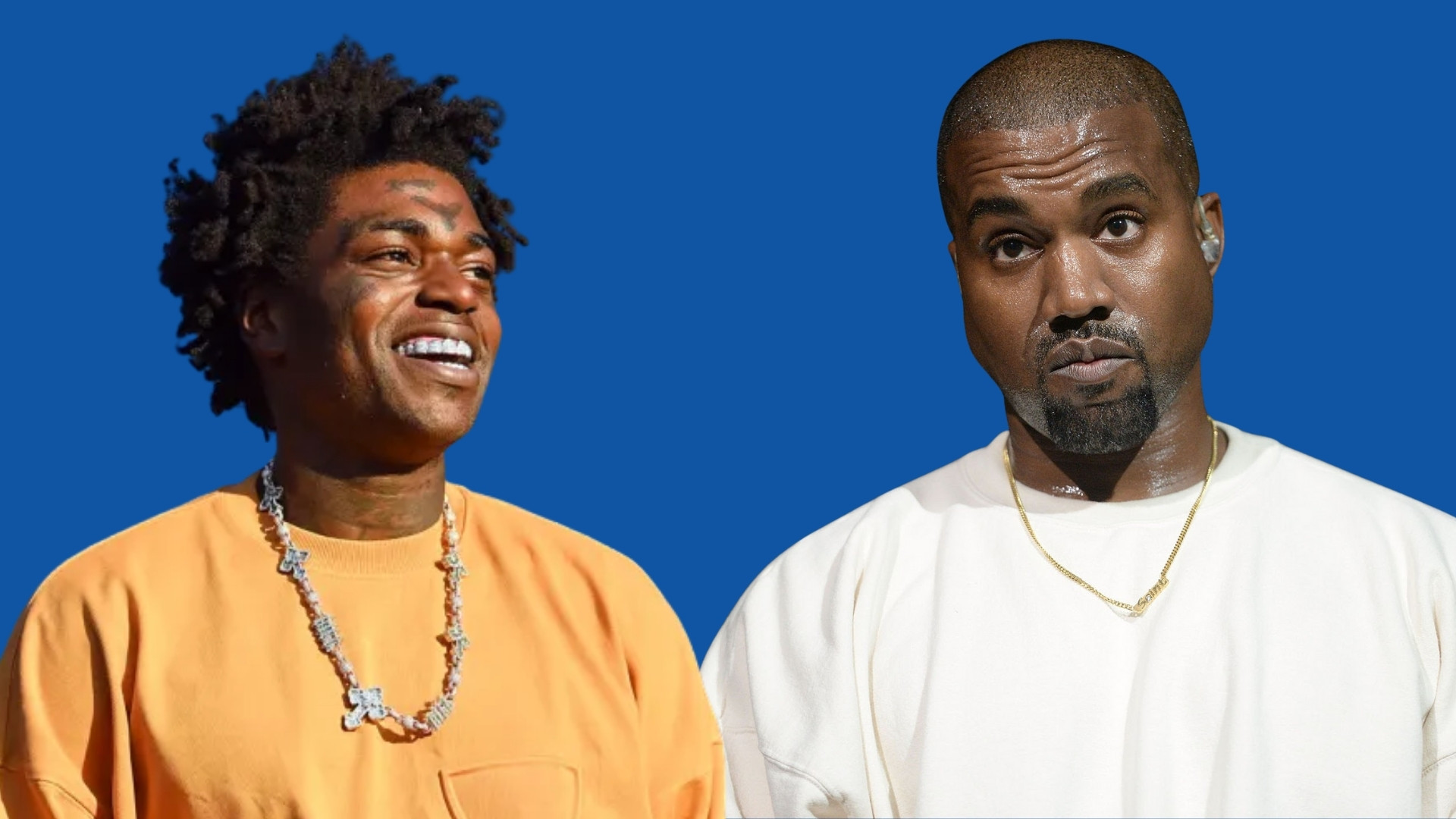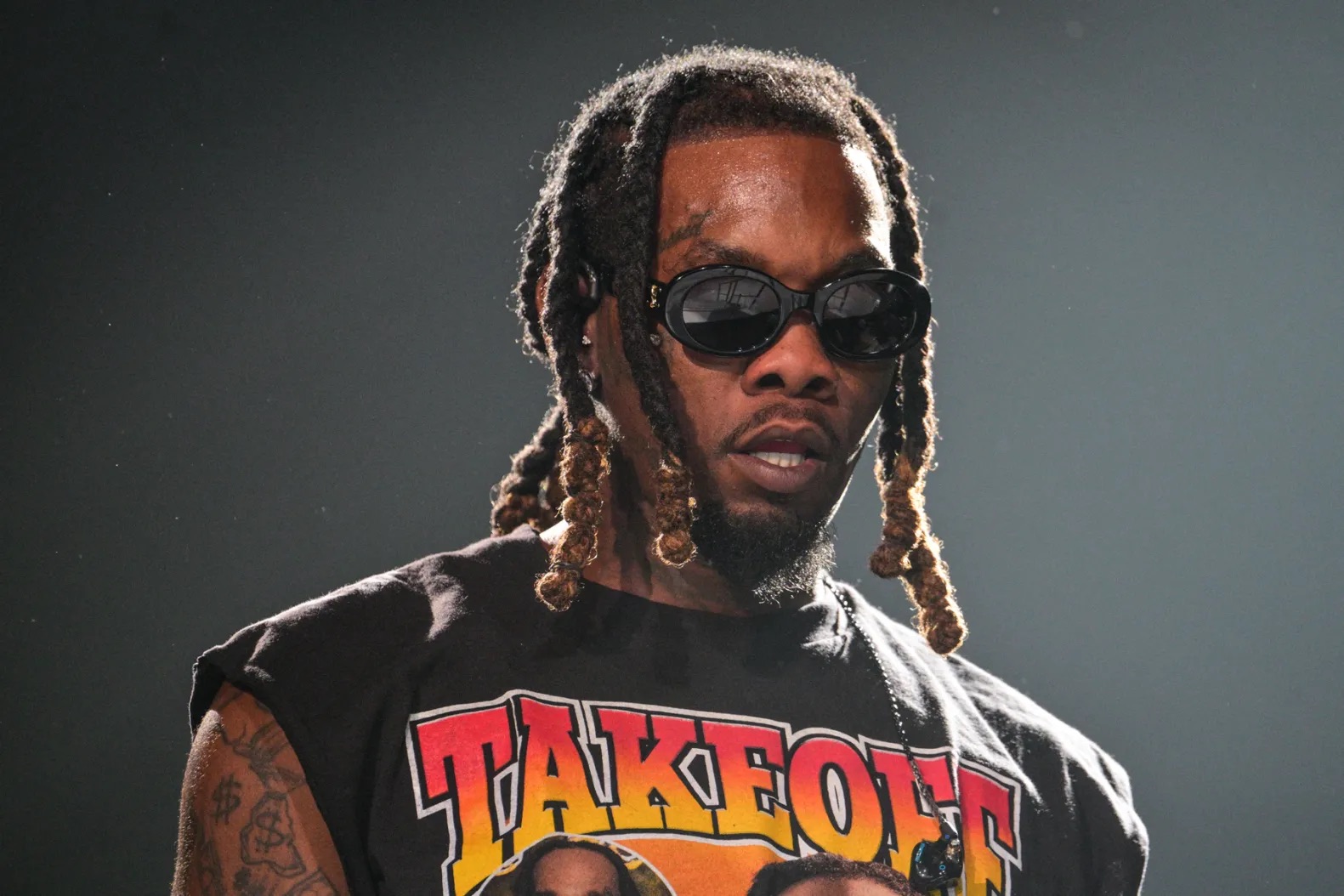The Type O Negative drummer reflects on the towering vocalist-bassist, who died a decade ago today.
“I miss him,” says Johnny Kelly. “But in a lot of ways, it feels like he never left. He’s still part of the conversation. His name always comes up. I’m glad that I’m still connected to him in that way, but 10 years ago, I never would have thought that people would remember Type O Negative.”
Back home near Dallas, where he moved several years ago, Kelly is remembering Peter Steele — his friend and bandmate in Brooklyn-bred goth metal quartet Type O Negative — who died April 14, 2010, from an aortic aneurysm at the age of 48.
“It’s odd to try to articulate because he passed away,” continues Kelly. “It’s like the lasting impression, and still being in a band, still playing and constantly running into people that are Type O] fans.”
Born Petrus Thomas Ratajczyk in the Red Hook section of Brooklyn on Jan. 4, 1962, and raised in Bensonhurst, Steele was in bands with childhood friend and future Type O keyboardist-producer Josh Silver since their teens. By the early 1980s, Steele had pieced together the politically incorrect Carnivore, which ran its thrash metal course through 1987. After Carnivore ended, Steele reconnected with Silver and longtime compadres Kenny Hickey (guitars) and Sal Abruscato (drums), forming Type O Negative in 1989. (Kelly replaced Abruscato in 1993.)
Steele’s gloomy baritone, towering stature (standing at nearly 6’8”), and vampiric good looks — which landed him a 1995 centerfold in Playgirl magazine — led Type O through the New York circuit, from regular local shows at the now defunct L’Amour nightclub in Brooklyn and the East Village’s the Ritz to worldwide tours. The act debuted with Slow, Deep, and Hard in 1991, then followed up with 1992’s The Origin of the Feces. Despite only peaking at No. 166 on the Billboard 200, 1993’s Bloody Kisses was a game-changer, earning platinum status and a deep cult following with the doom-y enthralls of the 11-plus-minute “Black No. 1 (Little Miss Scare-All)” and “Christian Woman.”
A pinnacle for the band, Bloody Kisses introduced a more melodious and cinematic Type O, bursting through the new wave of ’90s goth culture and swerving into lanes of thrash (“Kill All the White People”), hardcore and industrial. Crafted like the perfect soundtrack to a more sexualized Nosferatu-inspired flick, from orgasmic opener “Machine Screw” through to the hallucinatory instrumentation of “Can’t Lose You,” Bloody Kisses left its indelible mark on metal.
The group maintained an international presence with 1996’s October Rust, 1999’s World Coming Down, 2003’s Life Is Killing Me and its seventh and final album, 2007’s Dead Again. According to Nielsen Music/MRC Data, Type O Negative has sold 2.5 million albums and accumulated 98.4 million streams in the United States. However, the vocalist-bassist kept his day job — driving steamrollers, snow plows, garbage and dump trucks for the New York City Department of Parks & Recreation — until 1994, when the band was asked to join Motley Crue and King’s X on tour.
Throughout the years, Steele’s addictive personality left the band wondering what would come next. There was a point, says Kelly, where Steele had done so much damage to himself that the band couldn’t plan too far ahead. When he was at his worst with drugs and alcoholism, no one knew if he would still be around.
“There were points when we were like, ‘We don’t know if he’s going to live,’” recalls Kelly. “You get to that kind of perspective of ‘Is he going to make it?’ that you can’t plan anything a year from now.” Then Steele found sobriety and was clean for nearly a year until his death. “He got through all of that. He was at that place. We thought, ‘This guy’s going to be around forever.’ ”
After that, the band believed Type O Negative could survive anything: “We were going to be another Motörhead, and we were going to go out there and do this until we couldn’t do it anymore.”
Following the Dead Again World Tour that ended in Detroit on Halloween 2009 — what turned out to be the foursome’s last show together — Kelly and Steele spoke often in the time leading up to his death. Hickey and Kelly were living in Staten Island; Steele was in Scranton, Pa., with his girlfriend. Steele had found a place situated right between Hickey’s and Kelly’s, and was planning to move back by May 1 so they could begin writing and recording their eighth album. Kelly says that was also the date they could start moving gear into a local studio.
“Kenny and I went to check out a place the night before he died and tried calling him while we were at the studio to tell him that we found a place, and he didn’t answer,” he remembers. Steele had bad reception on his cell phone, so they tried his landline. “I called him on the house phone, and his girlfriend answered, and I said, ‘Can I talk to Peter?,’ and she said he was in bed sick.” (Steele was sick with the flu several days prior to his death.) “She said, ‘He told me to tell you, “Sorry I didn’t call you back.”’”
Steele also had a very sick cat, and Kelly feared the animal’s illness may have left Steele in an emotional state that led him to relapse. “When I was on the phone, I said, ‘Is there anything going on out there that I should know about? ” recalls Kelly. “She was like, ‘No, he’s sick, nothing like that.’ I was like, ‘Tell him to call me when he’s feeling better.’
“And then I got a call from his sister that night that he passed away,” he says. “So that’s it.”
The band really had thought it would be smooth sailing once Steele had gotten sober. Lucid and excited about making music again, his enthusiasm toward the end was something Kelly had never seen in nearly 20 years. “He could talk about the future,” says Kelly, “which was kind of refreshing.”
Wednesday, April 14, 2010, changed everything. “It ended the band,” he says. “Any aspirations of ‘This is what we’re going to do forever’ were now gone. Peter was gone. He finally got to a place that], for all the years that I knew him, he seemed OK with where he was. He wasn’t so tough on himself. It was just his number.”
In today’s incessantly politically correct world, Kelly predicts that Steele would have had a difficult time functioning if he were still alive. “The way everybody is so PC and everything like that and how people get so triggered, he couldn’t function like that,” he says, laughing. “He was not politically correct. I don’t know if a guy like Peter would be able to do his thing in this climate. Either he would be some kind of visionary, or there would be people outside with fire and sticks ready to kill him.”
Kelly feels that the Dead Again World Tour was one of their best, but Steele felt very self-conscious (due to having recently put on some weight), and was concerned about what fans would think. “I was like, ‘Peter, the first thing I think of, if this helps at all, is that you’re healthy,’” he says. “‘If you go out there and you deliver it, nobody’s going to care that you put on a few pounds. They don’t give a shit.’ And that’s what happened. I told him, ‘Peter, fans are loving it. They’re saying that they’re happy to see that you’re back.’ I hope that made him more comfortable and gave him a little bit more confidence in what he was doing.”
He says it’s sad that Silver, who was finishing an EMT course at the time, missed that tour. (Silver became a paramedic after Steele’s death.) But none of them had thought it was going to be the band’s final run. Sadly, while Steele had some song ideas, nothing was ever written down since the group often pieced together the tracks in the studio. “There isn’t anything that we can take and present to people and say, ‘This is what he was working on before he died,’ ” explains Kelly. “Whatever he had was in his head. He took it with him.”
There are no plans to resuscitate the quartet in any form, but Kelly, Silver and Hickey work with Steele’s family, who oversees his estate, on such items as the March 20 vinyl arrival of World Coming Down. (Next year marks the 30th anniversary of Slow, Deep and Hard, but no commemoration was planned at press time.)
In Type O fashion, Kelly finds the reissue somewhat appropriate, given the COVID-19 outbreak. He jokes that most fans will opt to buy toilet paper over a Type O Negative album — a funny thing, for the band used to autograph the hot commodity for admirers.
“The last thing people are thinking about is ‘Oh shit, the Type O record came out,’ ” says Kelly, laughing. “It’s like, ‘Wait a second: I need toilet paper. I can’t go to the record store to buy it. I really want the record], but I need toilet paper. I can’t wipe my ass with the record.’ ”
In retrospect, Kelly can chuckle at Type O’s strange fate — it took 30 years and the band’s demise to get its T-shirt sold at Hot Topic. “When the band was active, we didn’t] really look back,” he explains. “We were never really in a position where we could rest on any accomplishments that we had. We had to keep working. It was always ‘What’s next?,’ not ‘What did we do?’”
But Kelly never really thought Type O Negative would last a lifetime. “We always had the impression that this was all going to end the next day,” he says. “Every time a tour ended, we were like, ‘I guess that’s it; try to find a job, move on to the next part of my life.’ Then it became something that we were able to maintain.”
Kelly now serves as Glenn Danzig’s drummer and is still connected to his Type O brothers, playing with Hickey in Silvertomb (and previously in Seventh Void) and with Abruscato in A Pale Horse Named Death. The pandemic postponed a Silvertomb tour supporting Monster Magnet until January 2021, so Kelly is working on new material for his other band, Kill Devil Hill.
Before the interview ends, Kelly reiterates two things: One, what he feels is most important was that Steele was sober when he died. And two: People still talking about Type O Negative 10 years later is “the greatest testament” to everything the foursome achieved.
“The music was an extension of who we were as people, but we were just four working-class guys from Brooklyn,” he says. “We made a mark, ya know… We’re still revered, and they’re keeping us in high regard. That’s amazing.”



